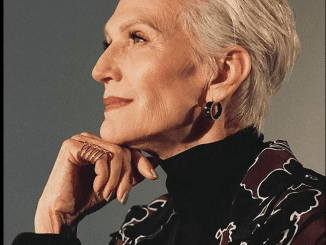Introduction to Jackie Chan and Jet Li
Jackie Chan and Jet Li are two of the biggest and most influential movie stars from China. Both are renowned for their iconic martial arts films and have captivated audiences worldwide. Despite both being martial arts artists, Jackie Chan and Jet Li have distinct styles, and each has carved out a unique legacy in global cinema.

Jackie Chan – Action, Humor, and Daring Stunts
Jackie Chan, born Chan Kong-sang in 1954 in Hong Kong, began his acting career at a young age, training in martial arts, dance, and acting at the China Drama Academy. After years of hard work, Jackie Chan became one of the most famous action stars, not just in China, but globally.
What sets Jackie Chan apart is his unique combination of action and humor. Not only is he an exceptional martial artist, but he is also a talented comedian who has the ability to make audiences laugh in the midst of intense action scenes. Films like Snake in the Eagle’s Shadow (1978), Drunken Master (1978), Police Story (1985), and Rush Hour (1998) have become iconic, featuring daring stunts performed by Chan himself without the use of stunt doubles, all while incorporating comedic elements into the action.
In addition to his acting career, Jackie Chan is also a director, producer, and philanthropist. He has built a strong film empire and serves as a role model for future generations of artists.
Jet Li – Traditional Martial Arts and Serious Action

Jet Li, born in 1963 in Beijing, is one of China’s most skilled martial artists and a major action star. Jet Li began his martial arts training at the age of 8 and won numerous gold medals in national competitions. His film career started in the 1980s when he appeared in martial arts films in Hong Kong. The film Shaolin Temple (1982) was a major breakthrough that made him a star in China.
Jet Li is known for his serious and intense martial arts style, delivering powerful action scenes that showcase the traditional martial arts of China. Films like Once Upon a Time in China (1991), Fist of Legend (1994), and Hero (2002) established Jet Li as a master of martial arts cinema, with beautiful fight choreography and heroic roles.
Unlike Jackie Chan, Jet Li does not focus on humor in his films, opting instead for serious, philosophical, and traditional martial arts performances. Jet Li also found international success with films like Lethal Weapon 4 (1998) and The Expendables 2 (2012).
Jackie Chan and Jet Li: Differences and Similarities

Although both Jackie Chan and Jet Li are major martial arts stars, their styles are notably different. Jackie Chan is known for his blend of action and humor, along with his daring stunts, while Jet Li is more focused on serious and authentic depictions of martial arts. While Jackie Chan emphasizes entertainment and humor in his action scenes, Jet Li brings deeper, philosophical themes into his martial arts portrayals, often presenting intense and meaningful fight sequences.
However, both share a common trait: their relentless dedication to their craft and a deep love for martial arts. Both have become symbols of Chinese cinema and have played pivotal roles in promoting Chinese martial arts to the global stage.
The Collaboration Between Jackie Chan and Jet Li
Despite their different styles, Jackie Chan and Jet Li have collaborated in some notable film projects. One of the most memorable films where the two martial arts legends appear together is The Forbidden Kingdom (2008), a Hollywood martial arts film. In the film, they play rival characters, bringing to life contrasting martial arts styles and delivering breathtaking action scenes. The movie was well-received by fans and is one of the memorable moments in both of their careers.
Conclusion
Jackie Chan and Jet Li are living legends in the martial arts film industry, each with their unique style but both leaving a profound impact on global cinema. Jackie Chan, with his unique blend of action and humor, created a fresh genre of action films, while Jet Li, with his powerful and dramatic martial arts, has preserved and elevated the traditional martial arts cinema. Although they have different approaches, both have made immense contributions to the martial arts film industry and remain a source of pride for Chinese culture.


